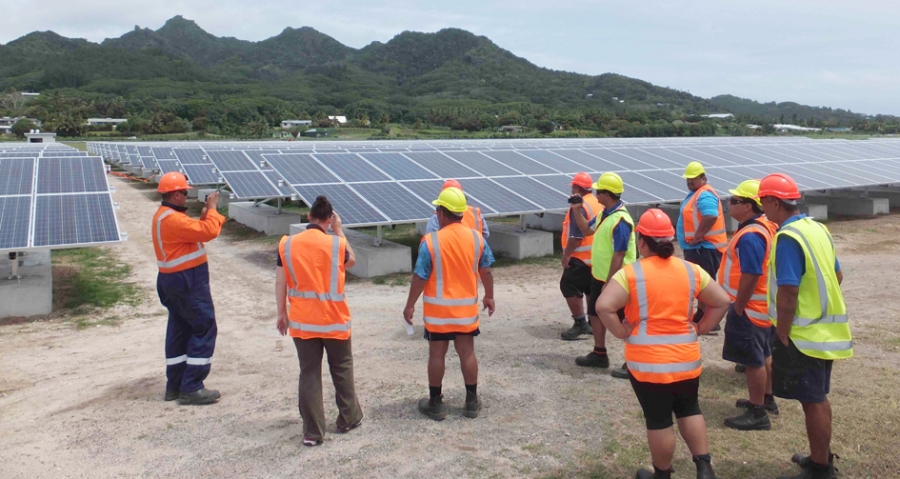Renewable energy 2030 commitment
Tuesday 17 October 2023 | Written by Losirene Lacanivalu | Published in Environment, National

(PHOTO: CI NEWS.) 14101002
Climate Change Cook Islands director Wayne King says as a developing country within the Paris Agreement, Cook Islands has its own commitment to meet the global climate challenge.
King’s response comes after Cook Islands News approached him for comments on New Zealand being among other countries that are not meeting its climate challenge.
“I think New Zealand is seeking the best least cost ways of meeting the challenges of addressing climate change at home,” he said.
“As you may be aware there has been much debate about how their country will meet their emission reduction targets in line with the Paris Agreement, such as by planting more permanent forests or going to the international markets to purchase offsets.”
King says the Cook Islands has its own commitment to meet its challenge of 100 per cent renewable energy by 2030.
Local environment group Te Ipukarea Society earlier said that facilitating the general public to install grid tied domestic solar systems on their home would help the Cook Islands achieve this 100 per cent renewable energy.
The country had committed to a future powered by renewable energy, with targets of 50 per cent of islands transformed from diesel to renewable energy by 2015 and 100 per cent coverage by 2020.
At the 2022 United Nations Climate Change Conference (COP27) it was reported that the Cook Islands has converted 13 of its 15 islands to solar energy and set a target of 2025 for the remaining two. The target was revised to 2030 in September last year by director of Renewable Energy Development, Tangi Tereapii.
TIS said the country has done well with the solar power project in the Pa Enua.
However, TIS technical director Kelvin Passfield said there is doubt that Cook Islands will achieve its 100 per cent renewable energy target.
“These communities with small populations are really the low hanging fruit,” Passfield said. “It is a much bigger task to get to 100 per cent solar energy on Rarotonga, which consumes more power than all the Pa Enua islands combined.”
Passfield said 100 per cent renewable energy should also include moving away from fossil fuels, and into electric vehicles or other forms of renewable energy powered transport.












































